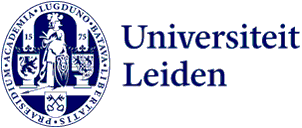
University signs Digital Sustainability Manifesto: ‘We need a Delta Plan’
Digitalisation can make a huge contribution to a greener future, but it must also be as sustainable as possible. To make significant progress, more collaboration and national leadership will be needed. Leiden University has therefore signed the Digital Sustainability Manifesto, which was presented on 18 October to Minister of Economic Affairs and Climate Policy, Micky Adriaansens.
The drastic consequences of climate change and the war in Ukraine have made it clear that we can no longer rely on fossil fuels, say the over 80 Dutch signatories, including several universities, large companies and banks. The Netherlands must lead the way in sustainable digitalisation, they continue, which is why ‘a Delta Plan’ is needed and fast. The manifesto (in Dutch) was presented at the Nieuwspoort press centre.

Energy-efficient data centre
Joop van der Born, the director of our ICT Shared Service Centre, and sustainability coordinator Marlies Nijemeisland explain why the University supports the manifesto and what is needed. Van der Born: ‘As a university we use a lot of electricity. Researchers at all our faculties are using increasingly powerful computers for their data research, which means we need a larger data centre. The challenge is to ensure these essential computer facilities are as sustainable as possible.’ In the new data centre only the cabinets that are in use will be cooled rather than the entire area. The heat generated will be used elsewhere. And the new extension was built from recycled materials.
‘It’s not sustainable to keep on reinventing the wheel’
Different legislation needed
Nijemeisland: ‘We purchase sustainable electricity and have more and more solar panels on our own buildings. That is good but in some respects we really do need different legislation to be able to achieve more. For instance, as a single party it’s harder for us to get a company like Microsoft to supply more sustainable products and services, but it’s easier to insist on this at a higher national and European level.’ More national subsidy schemes would also help, says Van der Born. ‘Then it’s much easier to encourage lots of organisations and businesses to become more sustainable.’
More research into sustainability
The signatories also call for better use to be made of digitalisation as a tool. This really appeals to us as a university, the two stress. Van der Born: ‘There are so many questions that our researchers could explore with the aid of digital data and models.’ Nijemeisland gives a few practical examples: ‘This could mean research into the best solutions in our everyday work: does a desktop or a laptop use more electricity? How can the work processes be made more energy efficient? Then we can share this knowledge with everyone. It’s not sustainable to keep on reinventing the wheel.’
The signatories will therefore share best practices and knowledge in numerous areas. Van der Born: ‘This Manifesto gives us some direction and ties in well with our new Strategic Plan – Innovating and Connecting – and with our Sustainability Vision 2030. If we join forces, we can make our digital footprint more sustainable sooner and use IT for appealing research with a positive effect on humans and the environment.’
